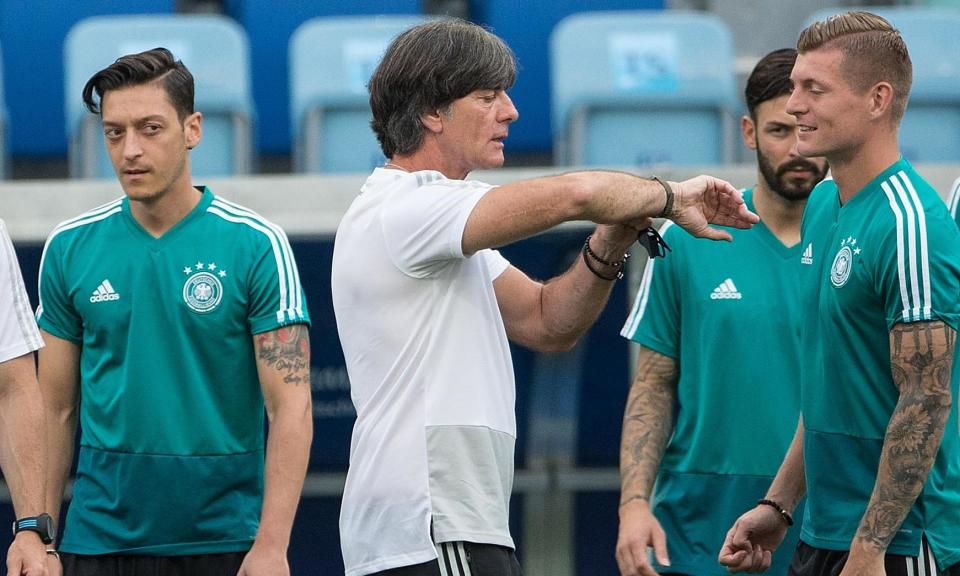Germany greats attack current crop of having ‘body language of a dead frog’
After the 1-0 defeat by Mexico last weekend and as the country ponders the possibility of a humiliating group‑stage exit against Sweden on Saturday, it is Mesut Özil, one of the key players of the Löw era, who has emerged as the easiest target in the media.
Mario Basler, a two-times World Cup quarter-finalist, accused Özil of having “the body language of a dead frog” and called for the Arsenal player to be omitted from the starting lineup for the crunch match in Sochi.
Stefan Effenberg, who missed out on the 1994 quarter-final defeat against Bulgaria because he had been sent home for giving the middle finger to Germany supporters, argued that Özil and his fellow midfielder Ilkay Gündogan should never have travelled to Russia after allowing themselves to be photographed with the Turkish president, Recep Tayyip Erdoğan.
READ MORE: Klose: Germany perform best under pressure
READ MORE: Germany back in the mood for Sweden clash, insists Hummels
“Both knew what they were doing,” Effenberg said in a talk show on the German television channel Sport1. “If the DFB [the German football association] had been consistent, they would have left them both at home. Because they didn’t do it, they have a massive problem, and they will be lumbered with that problem for the next four years.”
In a column in the tabloid Bild, Lothar Matthäus also singled out Özil, whose subdued performance against Mexico had been matched by equally lacklustre displays from his teammates. “With Özil on the pitch I often have the feeling that he doesn’t feel at ease in the DFB shirt, that he isn’t free, almost as if he doesn’t want to join in the game at all,” Matthäus said of the No 10, a World Cup winner who has scored 23 goals for his country in 91 games and was denounced as a traitor in Turkey when he decided to play for Germany in 2009.
The former Liverpool midfielder Didi Hamann has been one of the few former internationals to stand up for the beleaguered 29-year-old. “Hands off Özil!” Hamann told Kicker magazine. “If we want to play a role in this World Cup he is one of the most important, perhaps the most important, player in the team.” Hamann, a World Cup finalist in 2002, said Özil had become the target of a “witch hunt”: “When things run smoothly, everyone’s happy. When they don’t, it’s Özil’s fault. Özil is a brilliant player who has achieved a lot for German football.”
Those who have been more forgiving of the German team’s performance last weekend have focused their criticism on the team manager, who suddenly looks like a man fighting for his legacy.
Germany’s performance against Mexico reminded Süddeutsche Zeitung’s Christof Kneer of the Euro 2012 semi-final, when Löw was perceived to have been outcoached by Italy’s Cesare Prandelli. The country’s current crop of hyper-talented and super-prepared players were “a generation who have grown up with a satnav and who rely on a satnav but can no longer read a map when their satnav fails”.
Luckily for Löw, Özil and co, Germany’s supporters may turn out to be more supportive against Sweden than the pundits. Frank Ebbers, a fan from Hamburg, told German TV: “We’ll win 2-0. We always win 2-0 against the Swedes, at every World Cup.”



